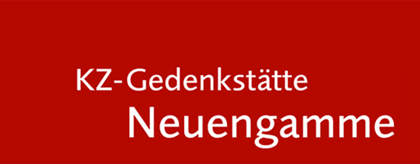12/07/2020 Project
Seminar cycle Places of Violence, Places of Learning
How do former places of violence become places of historical-political education? What challenges and problems, but also opportunities and innovations does the transformation of former sites of violence into memorials offer? Are there different challenges in different countries? We are currently discussing these and other questions in a tri-national seminar cycle with multipliers from Albania, France and Germany.
The goal of "Places of violence, places of learning" is not only to get to know the places and their specific historical-political contexts, but also to deal with the difficulties in the course of their respective development into memorial sites and to reflect on differences and similarities. Participating institutions and organizations are the Crossborder factory (Berlin), the Neuengamme Concentration Camp Memorial (Hamburg), the Memorial National de la Prison de Montluc (Lyon) and the organization Cultural Heritage without Borders Albania (Tirana). The cycle takes place within the framework of the Southeast Europe Initiative of the Franco-German Youth Office and Memory Lab (trans-European exchange platform on history and remembrance). The seminar language is English.
Three seminars were planned in Hamburg, Tirana and Lyon, in which we wanted to deal with the history of the respective place, its development into a memorial, innovative forms of educational approaches and related reflections on digital pedagogical formats. The focus was to be on visits to the historical sites: the memorial on the site of the former Nazi concentration camp Neuengamme in Hamburg, the former military prison Montluc in Lyon, where several thousand French resistance fighters* and Jews were imprisoned during World War II, and the former prison Spaç in northern Albania, where opponents of the regime were held during the communist regime between 1968 and 1991.
The Corona pandemic changed the planned setting. The trip to Hamburg became impossible for the Albanian and French participants. An online platform was therefore set up. Not only did we use Zoom (for plenary and break-out sessions), but on Microsoft Teams we also set up a pinboard on which all participants could introduce themselves with a photo and a short vita, and created the virtual "Café Hamburg" as a place for informal meetings. Although some participants had problems with the Internet or individual accesses, the technical side of the project was running satisfactorily throughout, also because employees of the crossborder-factory were available for questions and help.
Hamburg
So the first seminar in Hamburg in October 2020 took place digitally. After inputs on, among other things, German remembrance culture, the group of participants living in Germany visited the places that were originally intended to be visited by all participants and presented them to the Albanian and French participants via livestream: the former subcamps of Neuengamme concentration camp on Dessauer Ufer and at Bullenhuser Damm, the former concentration camp Neuengamme as well as the place where the Turkish-born merchant Süleyman Tasköprü was murdered in 2001 by the so-called National Socialist Underground (NSU).
Evaluation
Although it was a pity that the Albanian and French participants were unable to travel to Hamburg, at the end of the seminar the positive feedback and the joy of growing together as a group outweighed the difficulties, although the personal encounter had to be limited to the virtual space:
The project showed me, that many who work in this field show a lot of personal commitment and that touched me.
The group is fantastic. It is the perfect mixture of lovely and kind as well as curious and smart and engaged. I like the group a lot and am looking forward to meet again.
I was moved by the reaction of the group when we had the digital tour at the memorial for the children. The intensity of the group's reaction was overwhelming.
When we were informed that the first seminar would take place online I was very sceptical about its effectiveness, but what happened in Hamburg week was beyond my expectations. A special appreciation for all the dedication of the Hamburg team, I think they gave the maximum!
The most moving moment for me was the visit of the memorial for Süleyman Tasköprü and the history of the star, his family installed for him, in front of the official memorial.
I was very impressed by the commitment of the Hamburg participants and the level of reflections they brought into their visit. I especially enjoyed the links between past & present on the racist crimes perpetrated in Hamburg. I found it very instructive to how a country can reflect on its deep matters. I feel France mostly fails on that part, and I found it really inspiring to see that.
Hoping, that we will all be able to travel together to Albania in the fall of 2021 and to France in the spring of 2022, the first seminar ended with the formation of various small groups, which in the meantime want to exchange information online on specific topics which are
- The functions of a Memorial
- Young people and remembrance work
- Non-existing memory sites
- Linking the past with current conflicts and crimes
In this way, the good contact that has developed between the participants can be maintained over time and the exchange can continue.
Ulrike Jensen





